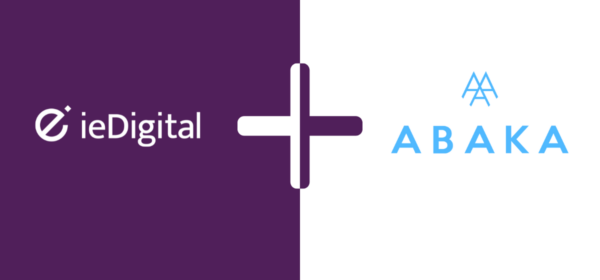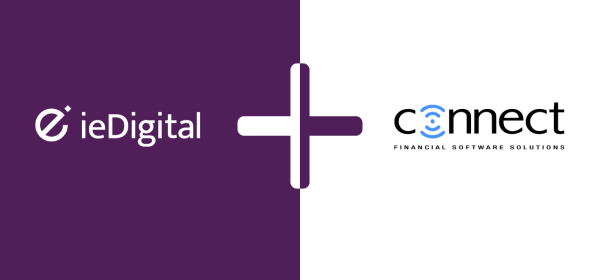Let’s introduce FreeAgent and talk about open banking. For those who don’t know, FreeAgent is cloud- based accounting software and is one of the most popular names in the industry. You guys were set up in Scotland, right?
We actually founded the company back in the pre-history of 2007. We were one of the first players in the industry here in the UK, and we’ve been around for nearly 13 years doing this. We’ve been based in Edinburgh since the start – an accident of geography rather than a deliberate choice, as I’m not Scottish by birth. I actually grew up in London. I just happened to move near Edinburgh with my family and that’s where things got started.
I don’t know about you, but in technology I tend to think of things pre-iPhone and post-iPhone. And you’re right on the dot. I think the iPhone is 2007.
That’s right, and in lots of ways it wasn’t a great time to be starting a business with all the financial stuff going on. I do think that if you can get a business going even in those kinds of times, then you’ve got something pretty resilient.
Yes, obviously a year before the crisis. How many employees do you have?
Another seven joined today! We’re up at over 210 now – quite a big step up, even in just the last year.

Keeping up with legislation
New legislation is coming out all the time. For instance, HMRC recently rolled out Making Tax Digital (MTD) for VAT. It’s the sort of progression we want to see as customers, but it must be a nightmare staying on top of new legislation across international borders. How do you guys stay on top of things?
It’s such a mixed blessing in lots of ways. We are very much focused on the UK. Something we’ve learned in the last 12 years is that what we really want to do is take a problem like small business accounting – by which we also include taxation in that problem set (unlike any other providers) – we actually think it’s one of the harder problems to solve. That contains us a little bit to the UK in the sense that it’s hard enough being on top of the UK legislation, let alone trying to crib multiple tax engines.
The compliance thing is a double-edged sword. Of course, it’s always a pain when the goalposts have moved. But it does also mean that the product is super-sticky with customers because keeping up with the changing legislative picture is doubly challenging for our customers and their accountants. So we’re taking on that problem for them. It makes us more attractive as a proposition. So there’s swings and roundabouts there for sure.
Which is the whole idea. That’s why people buy into the idea of software as a service, so that you guys are up to date.
That’s right. And in a way, there’s a sort of model where it would have been super-hard to deliver if you’re having to send out updates, CDs, or whatever people used to do back in the day. You just couldn’t keep up with the pace of change. The speed at which people can build tools now and continue to iterate them forward is light years ahead of where it used to be. It’s a very competitive market in that sense.
[Open banking] is a sort of industry capability that could give rise to all sorts of other super-interesting applications that people haven’t even started thinking about yet.
Real-time environments for real-time banking
And so to open banking. Banks can already connect to FreeAgent, and customers can see an up to date bank feed in the software, and are able to then explain each transaction as necessary. What’s changing in this regard for open banking connection?
We’ve had that kind of capability in FreeAgent for a while. One of the things we do know is that having at least a daily feed of bank transaction status – so that’s the previous day’s transactions – makes a big difference in the way customers engage with the software. It becomes not something you might get around to updating on a Sunday afternoon, or once a month, or once a quarter. Sometimes even once a year! It’s something that feels like it’s a more daily activity, because you can quickly log in, check if your invoice was paid yesterday and see what’s gone out. It makes it much more engaging on a daily and weekly basis. It’s a completely different sort of feel to using the software.
It’s much more of a real-time environment.
It is. And where we really want to get to is being completely real-time; the sort of thing you see with Monzo nowadays, where you get a little text message or an alert that tells you you’ve just completed a transaction. In some cases, before it feels like the transaction has actually been completed. It’s almost psychic and slightly spooky!
That kind of level of engagement and immediacy in a product of any kind, let alone accounting software, really drives different sorts of behaviour in customers. So that’s something we’ve had on a daily basis. Historically, even before open banking – in one of two ways really – one is having specific arrangements with banks. We had a historical relationship with Barclays bank for a few years, and we had a daily bank feed from them. More recently, even prior to our acquisition by RBS, we had arrangements to create bank feeds. So we had those. For everybody else, you could either download your bank statement yourself in any of the known formats, or we would use a partner called Yodlee, who would do the collection of data on our customers’ behalf. And that being (at that time) pretty much the only way to achieve that end, people would put up with the fact that Yodlee was a bit clunky and you’d end up having to enter your online banking credentials into their system – in a secure way – that would allow them to fetch transactions on your behalf.
So what we have now with open banking is really a unified way of thinking about all of those things in a way that the banks are happy with. They need to be comfortable with what’s going on. And it’s also, at least in theory, unified across all the banks, so everyone has access and transparency of the data in a way that you only theoretically have to implement once.
So it’s cutting out that middleman. It’s moving away from Yodlee.
It is. It’s one of those industry shifts, where it may even be too early to tell the kinds of applications beyond what we’re trying to do. It’s a sort of industry capability that could give rise to all sorts of other super-interesting applications that people haven’t even started thinking about yet.
Chunky banks and data transparency
FreeAgent has linked banking data from the CMA9 (the nine-strong group of the UK’s biggest banks as determined by the Competition and Markets Authority) as part of the Open Banking initiative. There are no startup banks in that list of nine. The situation is a little different for those guys, right?
The interesting thing is to look a little bit at the history of open banking. We’ve got a bunch of legislation coming from our friends in Europe – PSD legislation, PSD2 more recently – and we started to really drive towards the idea of how to improve competition among the big banks, who don’t seem to be trying that hard. That happened in parallel with what the CMA were doing in the UK. It made the same observation: Why is it that business banking in particular is so concentrated among these big chunky banks?
There’s a whole bunch of remedies to that problem. One of them is about data transparency. Being able to arm-twist big banks into being more transparent with data (that customers should own themselves) has been where all this has come from. It’s a good thing for customers to have more transparent and easy access to this kind of data.
And from a practical point of view, the challenger banks are already implementing open banking, so there’s really no need to change any settings in FreeAgent.
That’s right. You’ve got the CMA9, who have operated at various different speeds in their implementations, but are converging now in terms of the capabilities they have.
What’s been really good to see is that challenger banks, or banks outside of the CMA9, are also implementing support for open banking. They see it as being a competitive advantage to be able to support open banking in a way that the legacy banks never really thought. Once you’ve got the majority of bank accounts accessible through open banking, it starts to look a bit weird, and actually competitively negative, if you don’t allow that same access. It’s created the right dynamic in the market, which I think is really helpful.
Obviously, with new challenger banks coming in as well, it’s absolutely to their benefit to implement open banking, so that the kinds of tools people are starting to build can be easily built on top of their model as well as legacy banking models.
This idea of being as open as possible, allowing access to your platform and being agnostic about the sort of data you access, is the key to success.
Openness about data is the key to success
You guys have had an open API for many years, haven’t you, allowing third party providers to build integrations. Now it seems some of the challenger banks and startups are doing it the other way around, perhaps?
The funny thing is, you look at any bank strategy slides, and you look at any startup strategy slides, and there’s always a slide there with some sort of ecosystem. And of course whoever has written the slides has themselves at the centre of the ecosystem, and everyone else is arranged conveniently around the outside of them. That’s just the way people think about things. The degree to which you can put yourself at the centre of some ecosystem determines in a lot of people’s minds how successful you can be as a platform in the market.
If you can persuade everyone to build your API, push data into or out of you, and do the work for you, then you don’t have to do anything. You just sit there and everyone else builds a whole array of products and services around you. This idea of being as open as possible, allowing access to your platform and being agnostic about the sort of data you access, is the key to success. This is where everyone’s arrived at in the industry, and that’s great. There’s a lot of really interesting products and services to be built off that level of openness.
Can we deliver the benefits of open banking to the consumer?
What do you think are the challenges ahead for open banking and similar legislation in terms of offering a global SaaS solution?
I think open banking hasn’t had a lot of impact from a consumer point of view yet. People don’t necessarily see the point. I think accounting software is a particular case in point, where there is such an obvious advantage to having transparent access to bank transaction data. It’s sort of the heart of the accounting ledgers. There aren’t many other obvious use cases for open banking.
A lot of people think about aggregating multiple accounts together so that you can see what’s going on across multiple accounts. That is a useful thing. But really, doing the work of building a picture of people’s finances and being able to help them get the best out of all the different products and services that they have, that system is yet to be built. I know there are several companies that are having a good old go at building towards that – it’s the holy grail of what everyone’s trying to do – but that’s not around yet.
Most people see open banking as technology that still in need of a solution, and most consumers don’t yet understand what the possibilities might be until somebody shows them. It hasn’t been a spectacular success from a “this is amazing, open banking has changed my life” point of view, because there haven’t really been the applications built on what is essentially an industry specific infrastructure piece.
And we possibly haven’t sold the benefits properly, us guys in financial services: the speed, reliability and security.
Yeah, that’s right. But no one really cares about those things if it doesn’t deliver something to you that you couldn’t do before. If you imagine where people are trying to get to in terms of all of my financial information in one place, being able to move money around between different pots of things (not just bank accounts), and getting tailored advice on what I should do next given that my kid’s just gone off to university … Those are the kinds of things that people are trying to build. Until that kind of utility is available, then this idea that there is all of this transparency is of technical interest only in lots of ways.
Tiny businesses make the world go around, despite the red tape
Are small businesses in the minority, or do you find that it’s larger businesses that use FreeAgent?
We are very much focused on very tiny businesses. There are 5.7 million businesses in the UK, of which more than 95% of them are what we call micro businesses. These are businesses that have fewer than 10 employees. In fact, 75% have no employees at all. There’s this enormous concentration of very tiny businesses much more skewed towards that smaller end than most people expect, and that’s really the market that we’re interested in.
People say ‘SME’ quite a lot, and that doesn’t really narrow down … you know, we’re talking about up to 100 employees. That’s such an enormous range of businesses to include small and medium size.
It’s such a catch-all, isn’t it?
It is! It’s basically every business except BP, and that’s about it. The lifeblood of the UK economy is really very small businesses, and there’s millions and millions of them. Those are the businesses we’re really focused on. The average number of participants/employees in a FreeAgent customer’s business is 1.5. There are lots of sole traders, single limited companies, or IT contractor-type limited companies. And a handful of businesses with an employee or two, which demographically represents the UK as such, and then not that many that are larger. Primarily because that’s who we’ve targeted it at.
And the UK is a rich playing field for small business. We’re really one of the leaders in this respect.
It is. We’ve got a lot of people complaining a lot of the time about red tape, and are justified in doing that. But actually, in terms of getting started as a sole trader or even as a limited company, which isn’t straightforward, isn’t that hard. Most people find it a daunting prospect. I think the prospect of relying on something that you’ve created for your own livelihood is daunting. The mechanics of it, with a little bit of help, are typically not that hard. I think this is in contrast to some other countries around the world, where it can be tricky.
Collaborating with banks to create possibilities
Finally, what’s next for FreeAgent over the next 12 months?
We’re doing a lot of interesting stuff. We were acquired last year by the Royal Bank of Scotland Group, so RBS up here in Scotland and NatWest down in the UK. It’s obviously one of the big players in the banking market. It’s been an exciting time for us. We think about the size of the customer base that RBS and NatWest have, which is getting on for a million businesses in the business banking channels, and probably quite a lot of businesses in their personal banking channel as well (which is frowned upon, but it’s reality). Getting in front of those customers is super-exciting for us. Once you’ve reached that kind of scale of market access, a lot of other things start to become possible. The way we think about it is, what’s there to be built?
Being so close together as part of the same group makes so many of those things possible in a way that you just couldn’t imagine. Two separate parties cooperating so closely. We find ourselves in a great position to build those things and really shift what’s available in the market, which is super-exciting.














